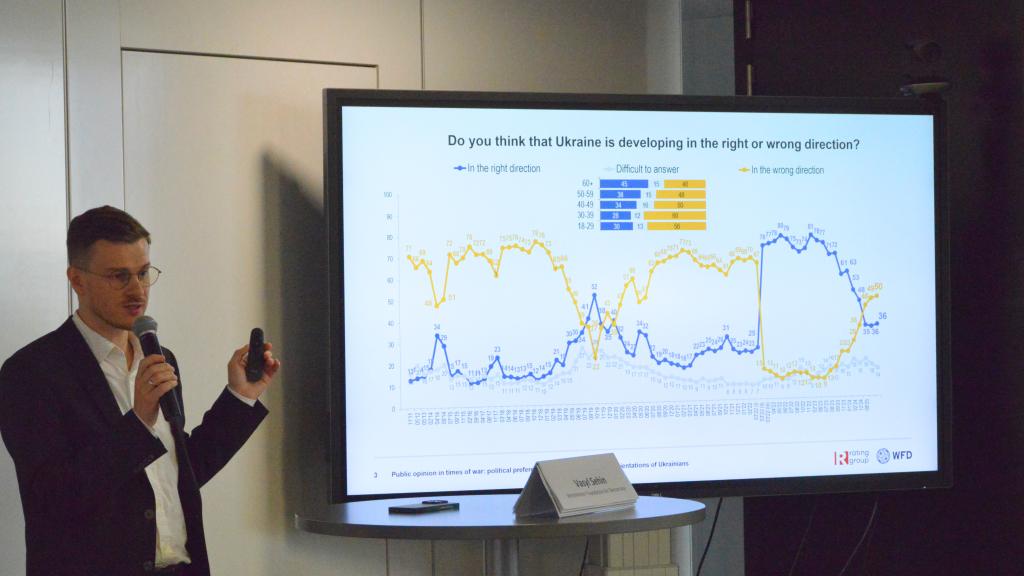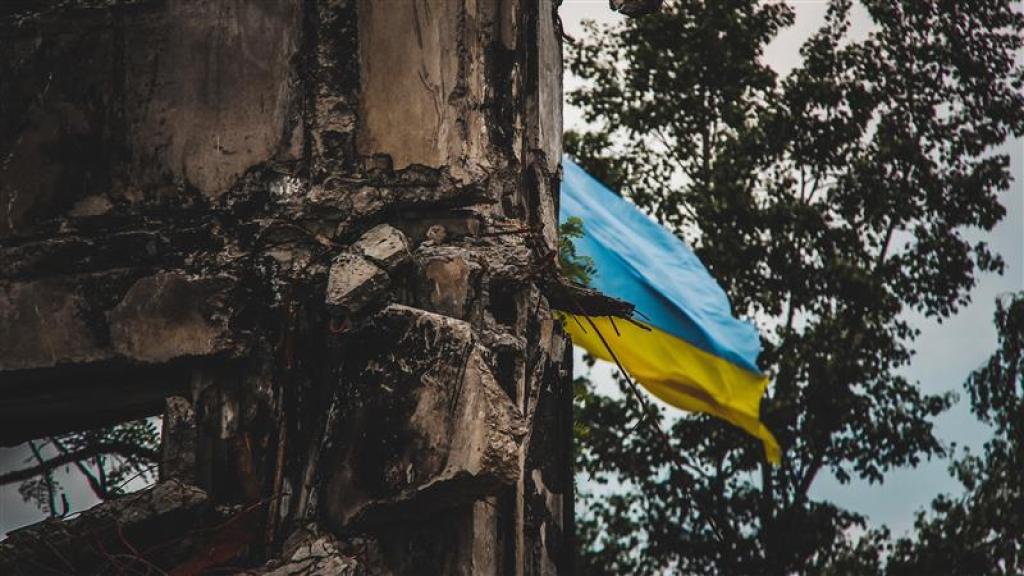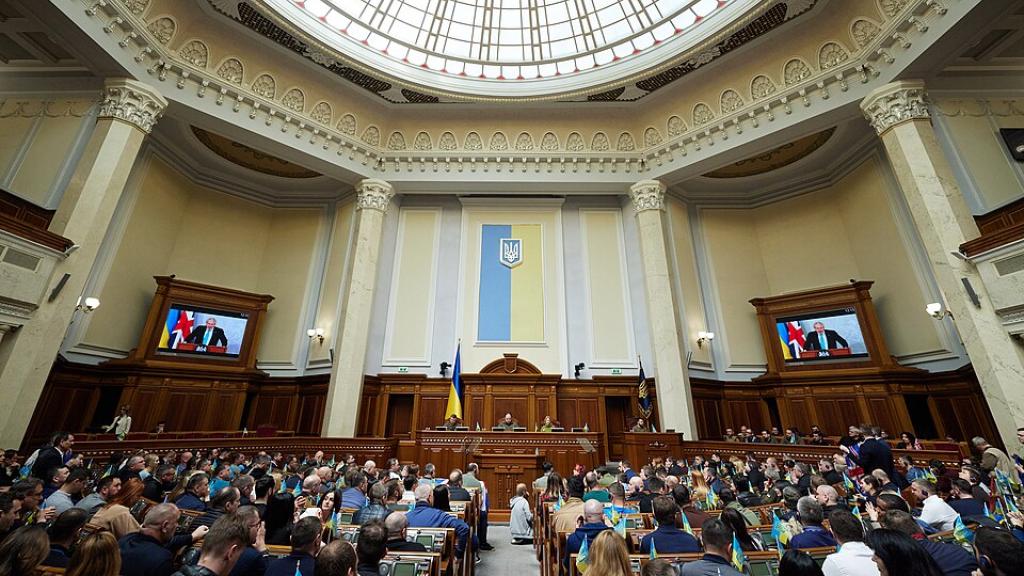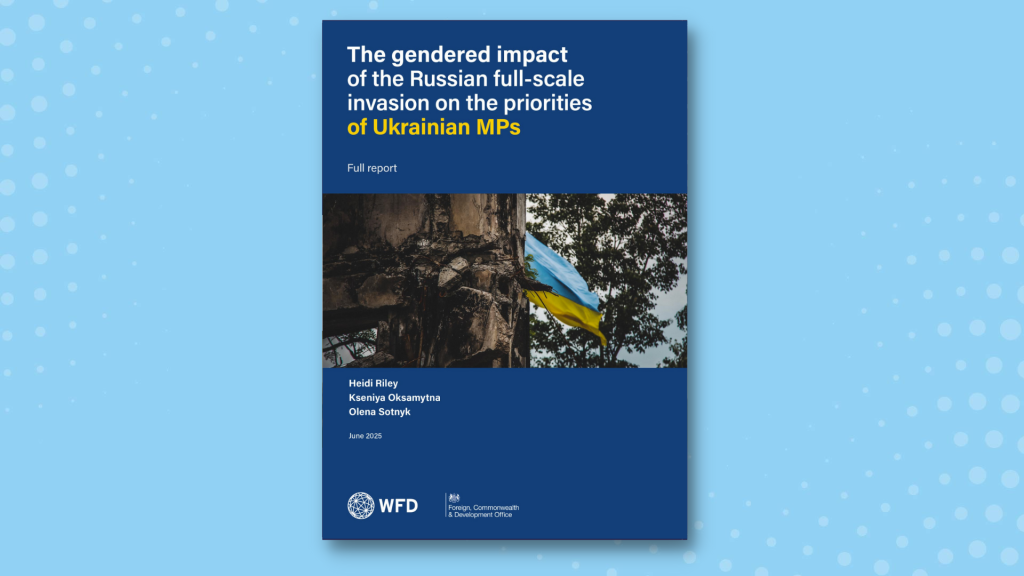WFD's latest poll in Ukraine shows democratic resilience amid war fatigue
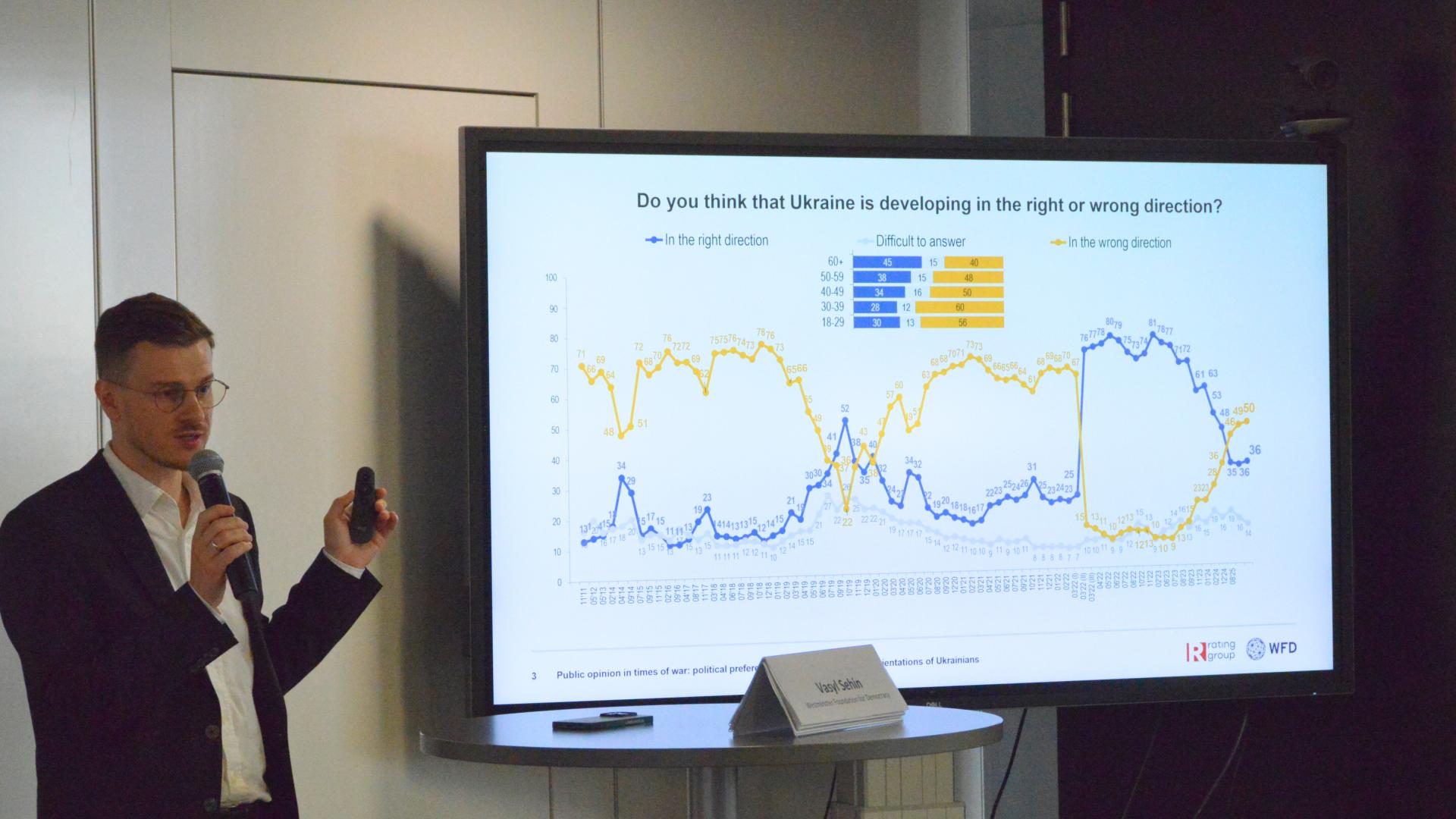
Ukrainians are not only fighting for their territorial integrity, they are defending their democratic future. Since the beginning of the war, polls consistently show that Ukrainians expect a democratic, transparent, and accountable state.
Westminster Foundation for Democracy (WFD) regularly conducts nationwide polls in Ukraine to explore public expectations, pressing societal issues, levels of trust, and attitudes toward political leadership during wartime. The latest survey conducted from 27 to 31 July 2025 shows the perspectives of over 2,100 Ukrainians on recent changes in anti-corruption institutions, trust in government and opposition, and attitudes towards future elections.
On 24 and 25 September, WFD presented these findings to key stakeholders in London including representatives from the UK Foreign, Commonwealth, and Development Office (FCDO), and in Brussels to members of the European Parliament (representing six political groups), the European Commission (DG NEAR and FPI), the Cabinet of the President of the European Council, and other key stakeholders at an event organised in partnership with the European Endowment for Democracy.
Ukraine's resilience amid growing fatigue
The results of the survey reflect both the resilience and the growing fatigue within Ukrainian society. While Ukrainians remain firmly committed to defending democracy and independence, they are increasingly dissatisfied with government institutions. Trust remains highest in the Armed Forces and wartime leadership figures, with President Volodymyr Zelensky maintaining control of the political landscape due to his dual role as Commander-in-Chief and Ukraine’s leading international representative.
The survey indicates a strong public demand for political change, but a broad consensus that elections should only take place after the war. Ukrainians continue to reject any shift toward military dictatorship, despite 90% support for veterans’ participation in politics. Importantly, voters expect future leaders to combine active involvement in the defense of Ukraine with competence, integrity, and relevant experience.
Generational divides are becoming more pronounced. Younger Ukrainians (ages 18–40) tend to be more pessimistic about the future and more intent on political renewal, including greater readiness to support elections even under wartime conditions. At the same time, the public demonstrates significant democratic maturity by accepting wartime restrictions while continuing to demand government accountability.
Other key insights
- Leadership expectations: Defense leaders are likely to dominate post-war politics, but public expectations extend beyond military service to competence and integrity.
- Stability and rule of law: Although around one-quarter of citizens want significant change, there is no appetite for destabilising transformations.
- Lack of strong ideological attachment: Many citizens are willing to support elements of different political traditions — liberal, nationalist, and socialist — reflecting a pragmatic and results-oriented political culture.
- Media landscape: Telegram and YouTube are the leading news sources for most Ukrainians, while the national media marathon remains influential among older generations.
As Ukraine continues to fight against Russian aggression, the survey underscores both the strength and sensitivity of its democratic development. International partners remain key in supporting Ukraine’s resilience. Many participants in Brussels noted that any future elections in Ukraine would benefit from EU and UK observation missions.
